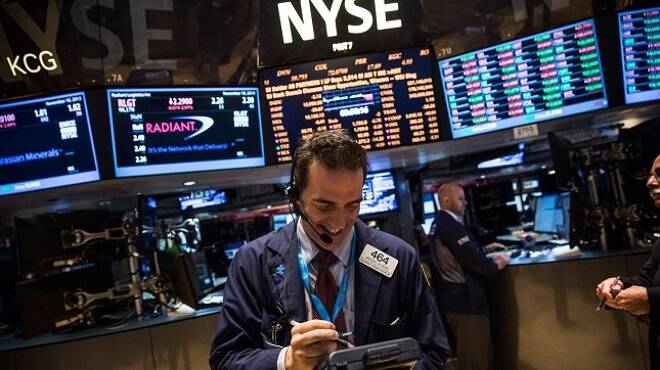Advertisement
Advertisement
Stocks Head South on Last Day of the Quarter as Investors Take Profits
By:
European stock markets are heading south, after losses on most Asian markets. In Japan investors cut positions on the last day of the fiscal year and
European stock markets are heading south, after losses on most Asian markets. In Japan investors cut positions on the last day of the fiscal year and shares wiped out gains for 2017 as positive economic and earnings numbers were overshadowed by lingering political uncertainty. In Europe quarter end trades and the end of the fiscal year in the U.K. also played a role. The DAX is up from earlier lows, after strong labor market data and as EMU inflation numbers fell back, which helped to counter ongoing ECB talk about exit steps. The FTSE 100 continues to underperform as the fiscal year comes to an end, although the index remains at high levels. Oil prices are also down on the day, although WTI is holding above USD 50 per barrel.
Japan reported that its core consumer prices rose 0.2% in February year over year, in line with expectations. Excluding fresh food and energy CPI rose 0.1% in February year over year. Core consumer prices in Tokyo, fell 0.4% in March year over year, versus a 0.2% annual decline expected.
Eurozone Inflation Declined More than Expected
Eurozone HICP inflation fell back to 1.5% year over year from 2.0% year over year. Much lower than initially expected, but not a surprise after the weak German and Spanish numbers Thursday. Prices were driven up by base effects from energy prices last month and markets expected a deceleration as part of these fell out of the equation again. However, core inflation also dropped to 0.7% from 0.9% year over year and while the full breakdown is not available yet, it seems the later timing of Easter this year is distorting the picture.
French March HICP steady at 1.4% year over year, unchanged from the previous month, while CPI fell back to 1.1% year over year from 1.2% year over year. French inflation didn’t show the same pick up on energy prices as in Germany or Spain last month. February PPI inflation meanwhile came in higher than anticipated at 3.9% year over year, while January was revised up to 3.6% year over year from 3.3% year over year which highlights that underlying price pressures are picking up with energy prices. At the same time consumption dropped sharply in February.
German retail sales rose 1.8% month over month in February, more than expected, but with January revised down to -1.0% month over month from -0.8% month over month and the annual rate falling back to -2.1% year over year from 2.7% year over year. German retail cover only a part of overall consumption and are volatile and subject to frequent revisions, so not always a reliable indicator. Consumer confidence has also been coming down, however, and the sharp spike in inflation and energy prices last month, will likely have dented spending on other products.
About the Author
David Beckerauthor
David Becker focuses his attention on various consulting and portfolio management activities at Fortuity LLC, where he currently provides oversight for a multimillion-dollar portfolio consisting of commodities, debt, equities, real estate, and more.
Advertisement
